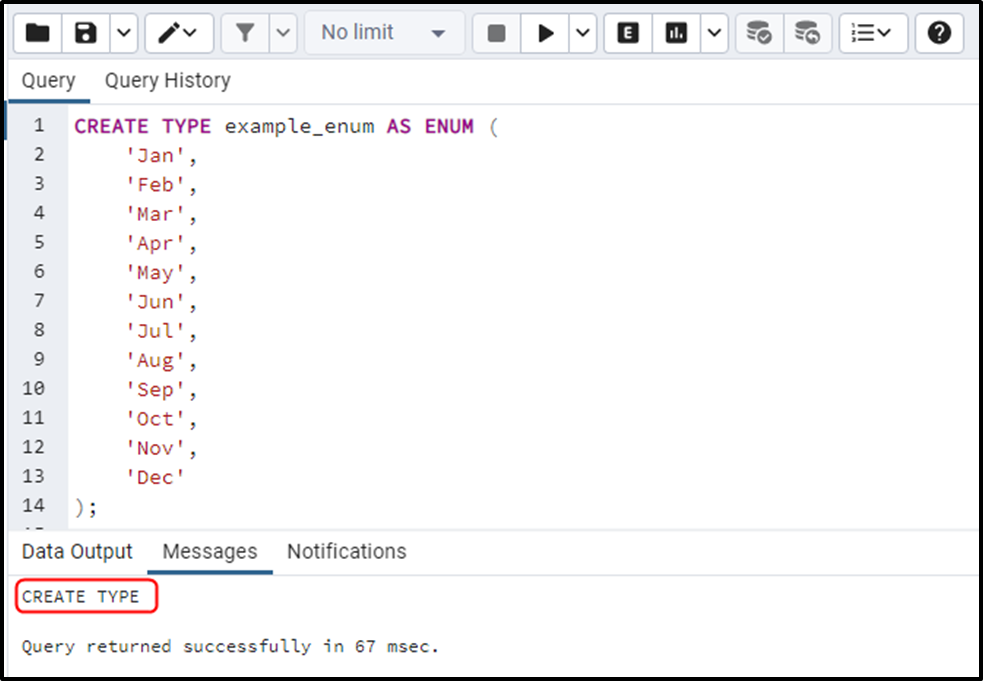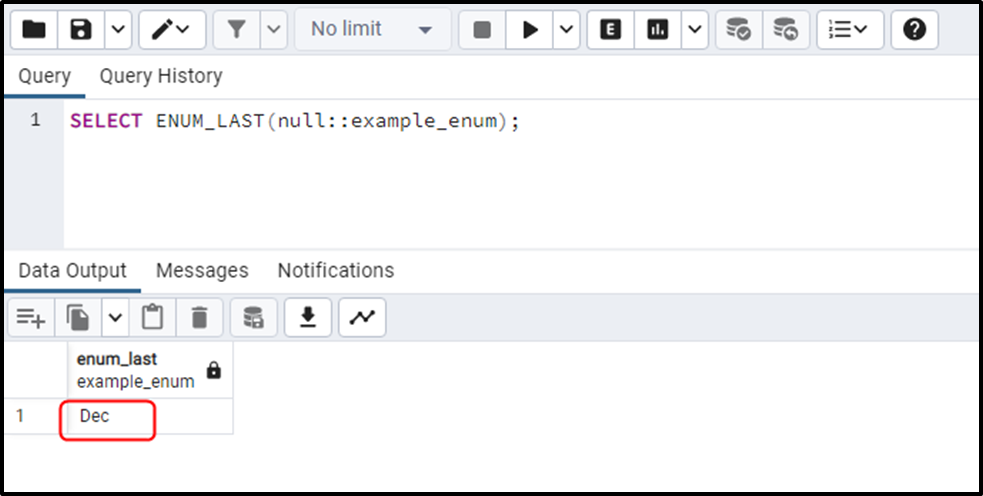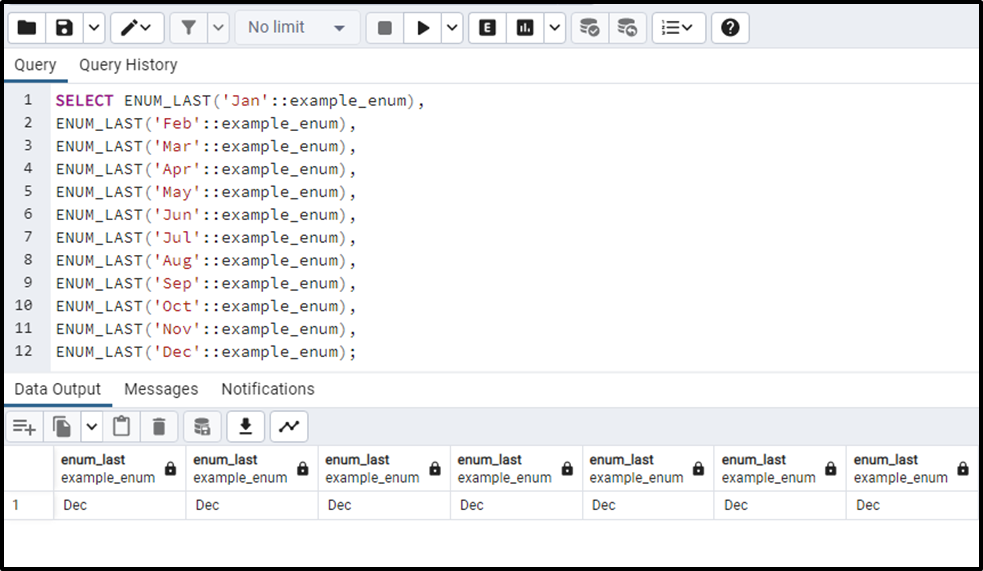PostgreSQL offers various built-in functions to manipulate the Enums data efficiently, such as ENUM_FIRST(), ENUM_LAST(), and ENUM_RANGE(). All these functions serve a specific purpose. For instance, the ENUM_FIRST() function retrieves the first value of the enum, the ENUM_LAST() function retrieves the last value of the enum, and ENUM_RANGE() retrieves the enumeration values within the specified range.
This post will illustrate the working of the ENUM_LAST() function using practical examples.
What Does ENUM_LAST() Function Do in PostgreSQL?
The ENUM_LAST() is a built-in function in Postgres that retrieves the last value of the enum specified by the parameter. Use the below-provided syntax to apply the ENUM_LAST() function on the enum type:
ENUM_LAST(enum_value ENUM);
Here, enum_val is a mandatory parameter that represents an enumeration value.
Example: Using ENUM_FIRST() in Postgres
First, let’s create an enum type named “example_enum” using the below-provided statement:
CREATE TYPE example_enum AS ENUM ( 'Jan', 'Feb', 'Mar', 'Apr', 'May', 'Jun', 'Jul', 'Aug', 'Sep', 'Oct', 'Nov', 'Dec' );
In the above code snippet, we utilized the CREATE TYPE to create an enum type that contains month names of the year:

Now, we will invoke the ENUM_LAST on the example_enum to get the last enum value of “example_enum”:
SELECT ENUM_LAST(null::example_enum);
The output shows that the ENUM_LAST() successfully retrieves the last enum value of the example_enum:

In the following code snippet, we will pass all enumeration values of type example_enum to the ENUM_LAST() function. As a result, the stated function will retrieve the following output:
SELECT ENUM_LAST('Jan'::example_enum),
ENUM_LAST('Feb'::example_enum),
ENUM_LAST('Mar'::example_enum),
ENUM_LAST('Apr'::example_enum),
ENUM_LAST('May'::example_enum),
ENUM_LAST('Jun'::example_enum),
ENUM_LAST('Jul'::example_enum),
ENUM_LAST('Aug'::example_enum),
ENUM_LAST('Sep'::example_enum),
ENUM_LAST('Oct'::example_enum),
ENUM_LAST('Nov'::example_enum),
ENUM_LAST('Dec'::example_enum);The output shows that the ENUM_LAST() function retrieves the last enumeration value:

This is how the ENUM_LAST() function works in Postgres.
Conclusion
The ENUM_LAST() is a built-in function in Postgres that retrieves the last value of the enum specified by the parameter. It accepts a mandatory parameter “enum_val” that represents an enumeration value and retrieves the last value of the selected enum. This blog post demonstrated the use of the ENUM_LAST() function in PostgreSQL using practical examples.



